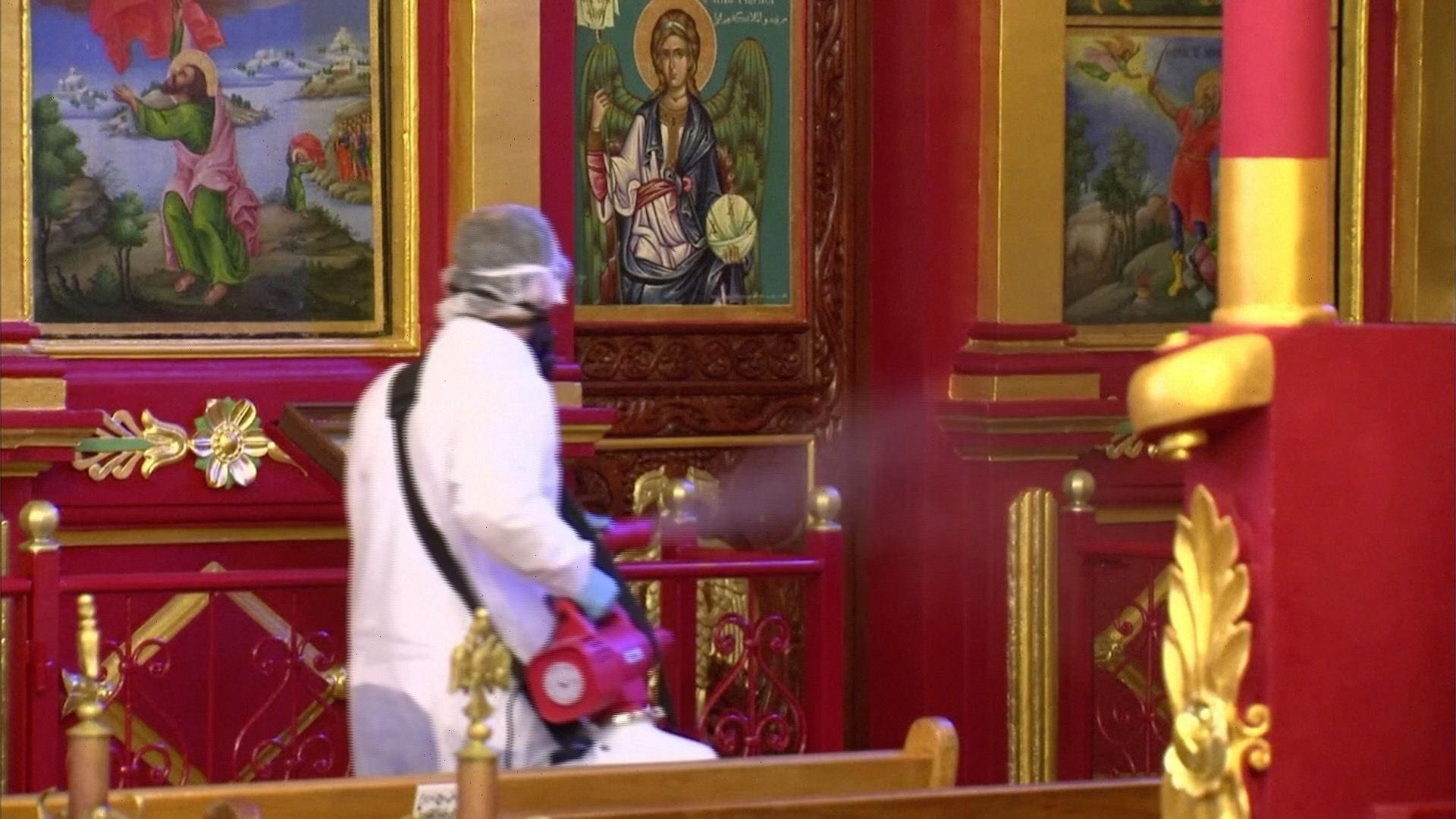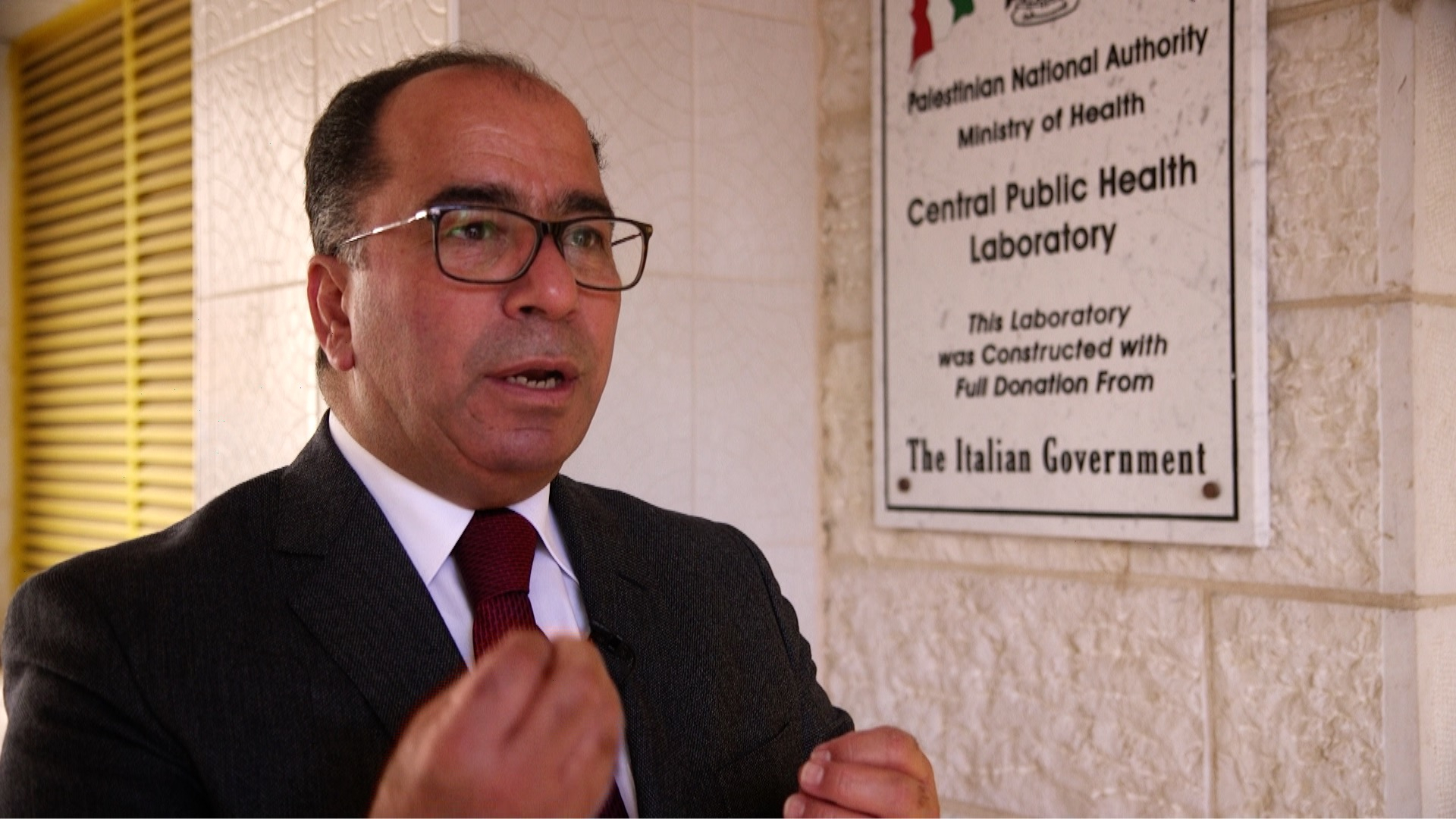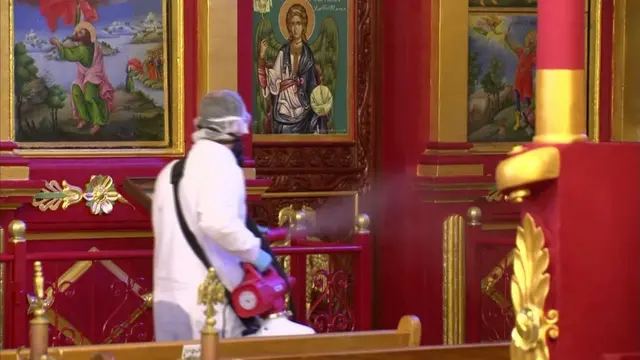
Palestinians went into lockdown mode, shutting schools and universities for a month and barring tourists from visiting holy sites after a visiting group of pilgrims was diagnosed with COVID-19 in Bethlehem.
In an unprecedented move, the Palestinian Authority (PA) closed the Church of the Nativity – believed by Christians to be the historic birthplace of Jesus – and refused entry to pilgrims traveling to holy sites during the Lent 40-day lead up to Easter.
Public gatherings, sporting events and festivals were cancelled and Palestinians are barred from traveling between West Bank cities.
"This is the effective way, for now, of dealing with the virus. We would rather be more cautious than not," Palestinian Health Ministry Director of Preventative Health Dr. Ali Abed Rabbo told CGTN.
Around 3 million Palestinians live in cities throughout the occupied West Bank – as authorities work to contain the virus, its spread quadrupled within days.

Palestinian Health Ministry Director of Preventative Health Dr. Ali Abed Rabbo. Stephanie Freid/CGTN
Field isolation units and fumigation
Israel controls all entry and exit points to West Bank – Palestinian and Israeli officials confirmed the two sides are collaborating on coronavirus policy in a joint-effort to contain the virus.
The Palestinian Health Ministry was unable to provide specific numbers of isolation units or beds available for patients who contract the virus but one official told CGTN field isolation facilities are being set up in all major cities.
Since the Bethlehem outbreak was announced, sterilization units sprayed the Church of the Nativity, Bethlehem's Manger Square and in central Hebron in an effort to sterilize against COVID-19.
Some Palestinians are stockpiling supplies, fearing the quarantine may last beyond thirty days.
 简体中文
简体中文





